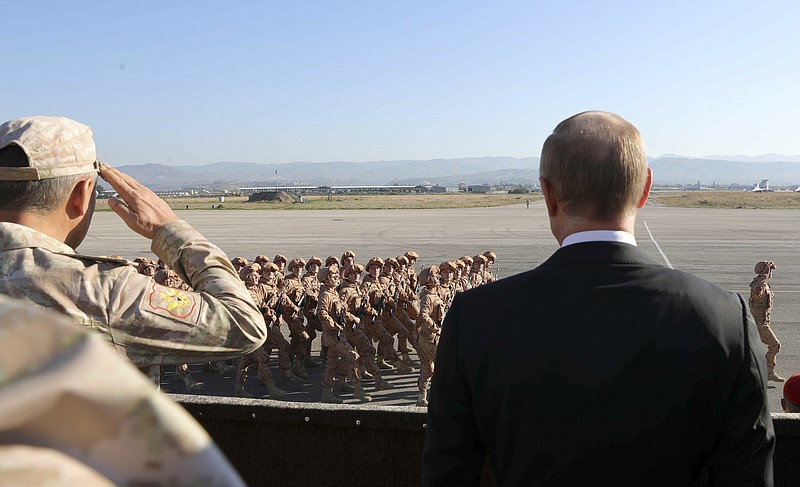WASHINGTON (AP) - It's a scenario many feared in the fog of Syria's multi-front war: a confrontation in which U.S. forces, responding to a provocation, kill Russian soldiers or mercenaries on a crowded battlefield.
Russian news reports Tuesday described just such a scenario, with an unknown number of Russian military contractors killed in a ferocious U.S. counterattack last week. However, Defense Secretary Jim Mattis and other U.S. officials said they had no such information on casualties, and the Kremlin did not confirm any Russian deaths. U.S. officials also said the Russian government had lodged no complaint about its citizens being killed.
What is not disputed is the fast-changing, often confusing nature of a battlefield in which forces of multiple countries are bumping up against one another, raising the prospect of violent collisions. Whether by accident or intention, such clashes risk plunging Washington and Moscow into a situation they studiously avoided even during some of the darkest hours of their relationship: their forces directly warring with each other.
Russian forces are supporting the Syrian government in its war with opposition groups, some of which are backed by the United States. Elements of both sides are fighting the last remnants of the Islamic State group in Syria. And U.S. and Russian military officials maintain daily contact to avoid battlefield mishaps.
Beyond doubt is the ferocious scale of the U.S. attack Feb. 7, in response to what the Pentagon called a barrage of artillery and tank fire from several hundred "pro-regime" fighters in Deir el-Zour province, an area in eastern Syria where the last IS fighters have converged among oil fields. Lt. Gen. Jeffrey Harrigian, commander of U.S. air forces in the Middle East, told reporters a broad range of U.S. air power was unleashed.
For more than three hours, American F-15E attack planes, B-52 strategic bombers, AC-130 gunships, Apache attack helicopters and Reaper drones fired on the attacking ground force, which Harrigian said was advancing under covering fire from artillery, mortars, rockets and tank rounds. The air power stopped the attackers' advance and destroyed an unspecified number of artillery guns and battle tanks, he said, but gave no estimate of casualties or full picture of the assailants.
"As the hostile forces turned west and retreated, we ceased fire," Harrigian, speaking from his headquarters in Qatar, said in a video teleconference with reporters at the Pentagon.
In a second episode, the U.S. struck a Russian-made T-72 battle tank Saturday after it "took a shot at us" in the same general area of Deir el-Zour province, Harrigian said, adding that he did not know who was operating the tank.
Russian media said Russian private contractors were part of pro-Syrian government forces that advanced on oil fields in the Deir el-Zour province and were targeted by the United States. The reports cited activists who said at least four Russian citizens were killed Feb. 7 in Syria.
The Russian Defense Ministry charged the incident reflected a U.S. push to grab Syria's economic assets under the cover of fighting the Islamic State group.

